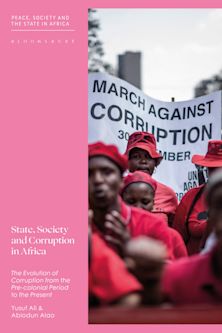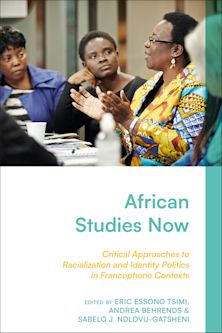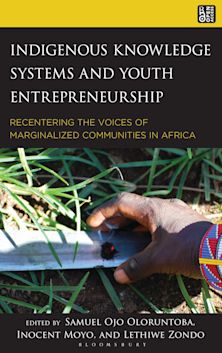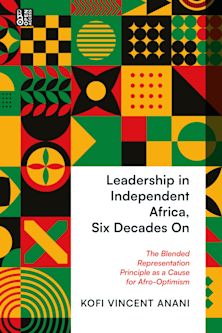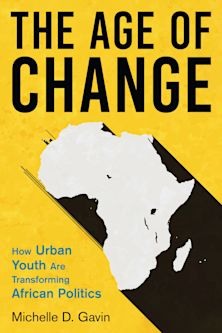- Home
- ACADEMIC
- Politics & International Relations
- African Politics
- Breaking the Colonial "Contract"
Breaking the Colonial "Contract"
From Oppression to Autonomous Decolonial Futures
Everisto Benyera (Anthology Editor) , Everisto Benyera (Contributor) , Tendayi Sithole (Contributor) , Ahmed Haroon Jazbhay (Contributor) , Tom Tom (Contributor) , Knobby Tomy (Contributor) , Washington Mazorodze (Contributor) , Mzingaye Brilliant Xaba (Contributor) , Godwin Etta Odok (Contributor) , Charles Pfukwa (Contributor) , Torque Mude (Contributor) , Collence Takaingenhama Chisita (Contributor) , Alexander Madanha Rusero (Contributor) , Joseph Ngoaketsi (Contributor) , Pascah Mungwini (Contributor) , Paul Mulindwa (Contributor)
Breaking the Colonial "Contract"
From Oppression to Autonomous Decolonial Futures
Everisto Benyera (Anthology Editor) , Everisto Benyera (Contributor) , Tendayi Sithole (Contributor) , Ahmed Haroon Jazbhay (Contributor) , Tom Tom (Contributor) , Knobby Tomy (Contributor) , Washington Mazorodze (Contributor) , Mzingaye Brilliant Xaba (Contributor) , Godwin Etta Odok (Contributor) , Charles Pfukwa (Contributor) , Torque Mude (Contributor) , Collence Takaingenhama Chisita (Contributor) , Alexander Madanha Rusero (Contributor) , Joseph Ngoaketsi (Contributor) , Pascah Mungwini (Contributor) , Paul Mulindwa (Contributor)
You must sign in to add this item to your wishlist. Please sign in or create an account
Description
The book exposes various mechanisms and methods by which covert colonial mechanisms are employed to perpetuate colonialism, especially in Africa. Less overt and more covert perpetuation of colonialism is done through the use of networks. The main achievement of the initial phase of colonialism was the establishment of networks that are nefarious and omnipresent; constituting “distributed presence,” which allows for “action at a distance.” As a result, colonial subjects became willing participants in these processes, unbeknownst to them, which perpetuated their own colonialism. The book exposes forms of colonialism where manufactured consent is used to perpetuate colonialism. Trapped in this capitalist, Western, Christian language and moral world order without sovereignty, African countries continuously sink deeper into the colonial quagmire.
Table of Contents
Chapter 1: How and why is colonialism a contract?, Everisto Benyera
Chapter 2 The Black and the Colonial Contract, Tendayi Sithole
Chapter 3: Unravelling the Paradigm of War Embedded in the Colonial Contract of Palestine: Contemporary Zionist Colonialism as an Extension of Global Islamophobia, Ahmed Haroon Jazbhay
Chapter 4: Contract farming as covert perpetuation of colonial capitalist hegemony? The Zimbabwe context, Tom Tom & Knobby Tomy
Chapter 5: Post- Independent African Leadership and the Paradox of Global Political Economy: The Zimbabwean Experience Under Mugabe, Washington Mazorodze
Chapter 6: The Zimbabwe Post-2000 'Illegal' Sanctions: The Cost of Rejecting the Colonial 'Contract'?, Mzingaye Brilliant Xaba
Chapter 7: Reclaiming Africa's Space and Development through Indigenous Knowledge Systems?: A Focus on Zimbabwe, Tom Tom
Chapter 8: 'State-Capture' of Indigenous Knowledge: Lived Experiences of Forest-Dependent Nigeria with Coloniality, Godwin Etta Odok
Chapter 9: Claims and Count
Product details
| Published | May 22 2020 |
|---|---|
| Format | Ebook (Epub & Mobi) |
| Edition | 1st |
| Extent | 298 |
| ISBN | 9781793622747 |
| Imprint | Lexington Books |
| Illustrations | 2 b/w illustrations;1 tables; |
| Publisher | Bloomsbury Publishing |
About the contributors

ONLINE RESOURCES
Bloomsbury Collections
This book is available on Bloomsbury Collections where your library has access.














